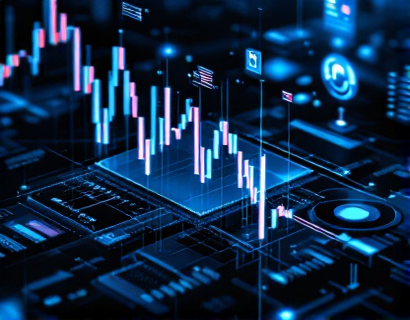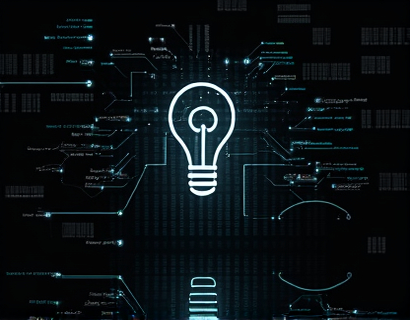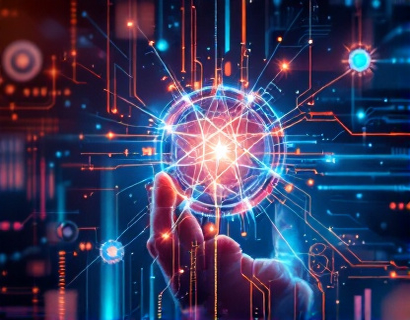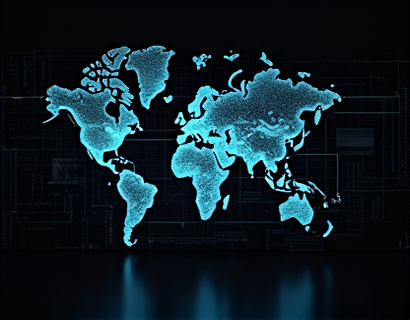Unlocking Digital Transformation: Leveraging Crypto and AI for Enhanced User Experiences
In the rapidly evolving landscape of technology, digital transformation has become a pivotal concept, driving innovation and redefining how businesses and individuals interact with digital solutions. At the forefront of this transformation are two revolutionary technologies: blockchain and artificial intelligence (AI). This article explores how the convergence of these technologies is unlocking new possibilities, creating seamless, engaging, and secure user experiences that are reshaping the future of tech. For tech enthusiasts, cryptocurrency aficionados, and anyone interested in digital innovation, understanding the synergy between blockchain and AI is crucial for staying ahead in the tech ecosystem.
The Intersection of Blockchain and AI
Blockchain, known for its role in cryptocurrencies, is a decentralized ledger technology that ensures transparency, security, and immutability. AI, on the other hand, involves the simulation of human intelligence processes by machines, particularly computer systems. When combined, these technologies offer a powerful toolkit for enhancing digital experiences. The integration of blockchain and AI can lead to more secure, efficient, and personalized interactions, making it a cornerstone of digital transformation.
Enhanced Security through Blockchain
One of the most significant advantages of blockchain is its ability to provide robust security. In a digital world where data breaches and cyber threats are rampant, blockchain's decentralized and cryptographic nature offers a higher level of security. By using blockchain, sensitive user data can be stored and transmitted securely, reducing the risk of unauthorized access. This is particularly important in applications where user privacy and data integrity are paramount, such as in healthcare, finance, and identity verification.
AI can further enhance this security by detecting and mitigating threats in real-time. Machine learning algorithms can analyze patterns and identify anomalies, allowing for proactive measures against potential security breaches. The combination of blockchain's immutable records and AI's predictive capabilities creates a formidable defense mechanism, ensuring that user data remains protected and trust in digital systems is maintained.
Personalized User Experiences with AI
AI's strength lies in its ability to process vast amounts of data and derive meaningful insights. In the context of digital transformation, AI can be leveraged to create highly personalized user experiences. By analyzing user behavior, preferences, and interactions, AI algorithms can tailor content, recommendations, and services to individual needs. This level of personalization not only enhances user satisfaction but also increases engagement and loyalty.
For instance, in e-commerce, AI-driven recommendation systems can suggest products based on a user's browsing and purchase history, leading to a more intuitive and satisfying shopping experience. In the realm of content consumption, AI can curate news feeds, music playlists, and video recommendations that align with a user's interests, keeping them engaged and coming back for more.
Blockchain-Powered AI: A New Paradigm
The synergy between blockchain and AI extends beyond security and personalization. The emergence of blockchain-powered AI solutions is redefining how machine learning models are developed, deployed, and managed. These solutions address some of the key challenges faced by traditional AI systems, such as data privacy, model transparency, and computational efficiency.
Data Privacy and Ownership
One of the critical issues in AI is the handling of user data. Traditional AI models often rely on centralized data repositories, which can be vulnerable to breaches and misuse. Blockchain offers a decentralized approach to data management, allowing users to maintain control over their data while still enabling AI systems to access and utilize it. This is achieved through decentralized data storage solutions and smart contracts that enforce data usage policies.
For example, a user can grant permission for a specific AI application to access their data for a particular purpose, with the terms and conditions defined by the user. Once the task is completed, the data can be retrieved or the access revoked. This not only enhances privacy but also builds trust, as users have greater transparency and control over their data.
Transparency and Trust in AI Models
AI models, especially deep learning networks, are often considered black boxes, making it difficult to understand how they arrive at certain decisions. This lack of transparency can be a significant barrier to adoption, particularly in regulated industries where explainability is crucial. Blockchain can help address this by providing a transparent and auditable record of AI model training and decision-making processes.
By storing the data, algorithms, and outcomes on a blockchain, each step in the AI pipeline can be traced and verified. This ensures that the models are fair, unbiased, and adhere to ethical standards. Additionally, smart contracts can automate compliance checks, ensuring that AI systems operate within predefined parameters, further enhancing trust in AI-driven solutions.
Decentralized AI Computing
Another innovative application of blockchain in AI is decentralized computing. Traditional AI models require significant computational resources, often leading to high energy consumption and costs. Blockchain-based decentralized computing platforms allow for the distribution of AI tasks across a network of nodes, leveraging the computational power of multiple participants.
This not only reduces the computational load on individual devices but also promotes a more sustainable and cost-effective approach to AI development. For instance, a decentralized AI platform can enable researchers and developers to access a pool of computational resources for training and testing models, without the need for expensive hardware. This democratizes access to AI technologies, fostering innovation and collaboration across the tech community.
Use Cases of Blockchain and AI in Digital Transformation
The potential applications of blockchain and AI in digital transformation are vast and varied. Here are some key use cases that illustrate how these technologies are being leveraged to enhance user experiences and drive growth:
Supply Chain Management
Blockchain and AI can revolutionize supply chain management by providing end-to-end visibility and efficiency. Blockchain ensures the integrity and traceability of supply chain data, while AI can optimize logistics, predict demand, and detect fraud. For example, a blockchain-based system can track the movement of goods from manufacturer to retailer, with AI algorithms analyzing this data to identify bottlenecks and improve delivery times.
This combination not only enhances transparency but also reduces costs and improves customer satisfaction. Retailers can provide real-time updates to customers about the status of their orders, building trust and loyalty.
Healthcare
In healthcare, the integration of blockchain and AI can lead to more accurate diagnostics, personalized treatments, and secure patient data management. Blockchain can ensure the secure and privacy-preserving sharing of medical records, while AI can analyze these records to identify patterns and predict health outcomes.
For instance, AI-powered diagnostic tools can review patient data stored on a blockchain to provide doctors with comprehensive and up-to-date information, leading to more informed and precise medical decisions. Additionally, blockchain can facilitate the secure sharing of research data, accelerating the development of new treatments and drugs.
Financial Services
The financial sector is another area where blockchain and AI are making significant impacts. Blockchain provides a secure and transparent platform for transactions, while AI can enhance fraud detection, risk management, and customer service.
For example, AI-driven systems can monitor blockchain transactions in real-time to detect suspicious activities, such as money laundering or fraudulent transactions. This proactive approach can significantly reduce financial crimes and protect consumers. Moreover, AI can personalize financial services, offering tailored investment advice, credit scoring, and customer support based on individual preferences and behaviors.
Challenges and Considerations
While the potential of blockchain and AI in digital transformation is immense, there are several challenges and considerations that need to be addressed:
Technical Complexity
Both blockchain and AI are complex technologies that require specialized knowledge to implement effectively. Organizations need to invest in skilled personnel or partner with experts to navigate the technical challenges and ensure successful integration.
Regulatory Environment
The regulatory landscape for blockchain and AI is still evolving, with varying degrees of acceptance and oversight across different regions. Compliance with regulations is crucial to avoid legal issues and ensure that digital transformation efforts are sustainable and ethical.
Ethical Considerations
As AI becomes more pervasive, ethical concerns such as bias, privacy, and autonomy must be carefully considered. It is essential to develop AI systems that are fair, transparent, and respectful of user rights. Blockchain can play a role in this by providing auditable and verifiable records of AI processes.
Conclusion
The convergence of blockchain and AI is unlocking new possibilities for digital transformation, offering enhanced security, personalization, and efficiency. By leveraging these technologies, organizations can create innovative solutions that not only meet current needs but also anticipate future demands. As the tech landscape continues to evolve, staying informed about the latest advancements in blockchain and AI will be crucial for businesses and individuals alike. Embracing these technologies can lead to more resilient, user-centric, and forward-thinking digital experiences.











































